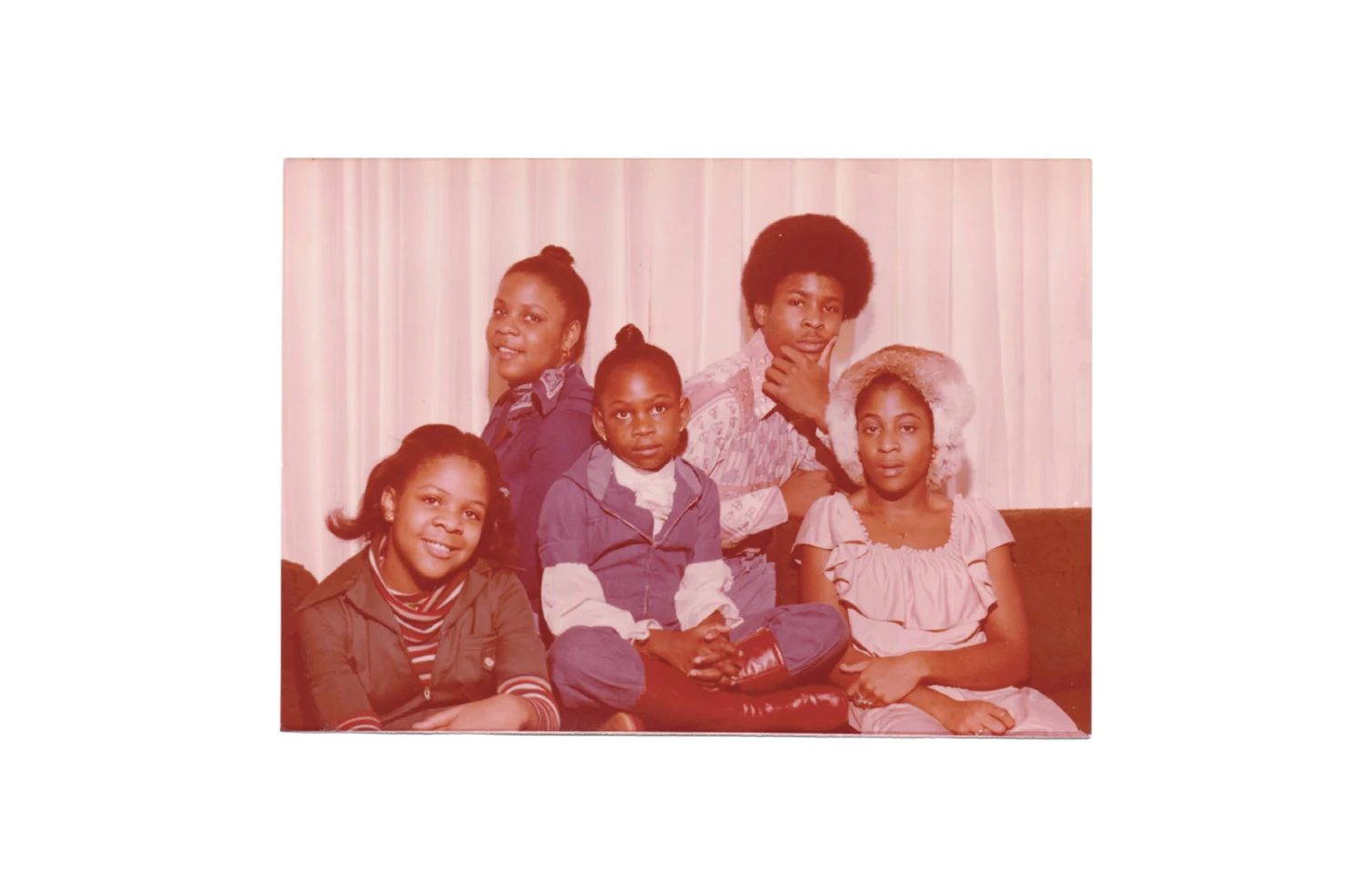hands up! don't shoot!
You will listen, O LORD, to the prayers of the lowly. You will give them courage. You strengthen their hearts and You hear their cries. You win justice for the orphaned and oppressed, so that mere mortals may no longer terrorize them.
Psalms 10: 17-18
Back in 1985 – pre- iTunes, Pandora, and Spotify – cassettes and records weren’t hobbyist collections but our actual iPods. So, if you wanted to hear your jam, you hopped in the car, switched on the radio and hoped for the ghetto blessings of perfect timing. I remember the first time my roommate/sister and I heard Prince and the Revolution on the radio. We already loved “just” Prince. Oh, but when he went out and posse’d up a band of likewise ruffle-paisley-silk-satin-pirate boot wearing rebels and started his Revolution with the first organ chords of “Pop Life,” my older sister Mia and I immediately enlisted in his army, each of us appropriately outfitted in satin, paisley-embossed shirts from her side of the closet and cruising with the windows rolled down in her red Ford escort—our iPod circa 1985. That car and its one-speaker radio tuned into the one available R&B radio station (aka the black radio station) was life.
Some of you might be too young to remember, so let me explain. Getting into the car and turning on the radio just as the first chord of your jam was starting was akin to meeting someone on Tinder, falling in love and getting married six months later. Okay maybe it wasn’t as rare as that. But it was pretty dang rare and pretty dang special.
When I was 11, my oldest sister Debbie picked up me, my sister Mia and our nephew Sean from visiting my mother at her house for the weekend. For as long I can remember, I and each of my siblings had been warned by my grandparents about driving through Walton Hills on our way home to Northfield. “Don’t speed around there, you know they’re looking to pull you over.” Our hometown, Northfield, was all white. Walton Hills was whiter than white, as we used to say. But, we were on our way home, and to get there, we had to go through the white wilderness of Walton Hills.
I want to address something before I go on with this story. Perhaps you’re thinking, “Well, how can it be all white if your family lived there?” Let me define “all white”. If you were the only white family in your neighborhood and every other neighbor surrounding you was black, how would you describe your neighborhood? If the only white kids on the school bus were your kids and two other kids that lived across town, how would you describe the bus? Being specifically correct about the makeup of your neighborhood’s demographic could not and would not sufficiently capture your experience. It cannot and will not sufficiently do justice to my experience to say that our town was 3% black. When in fact what we experienced everyday felt 100% white. Our town, Northfield, was “all white”. Walton Hills was whiter-than-white. As far as we could tell, it contained no percentage of any other color.
That night, we were in my sister’s happy cocoon-on-wheels driving the mile or so strip through Walton Hills to get our neighboring town. We were only ten or fifteen-minutes or so away from home—that’s three jams on the radio if we were lucky and there were no commercials—when sirens rose up behind us with lights flashing. It was as if the whole world went mute—the radio, our chatter. Even my nephew, Sean, who was only 2 years old, woke from sleeping, startled but silent.
With tears at the ready, my sister, Debbie, pulled over, and I could feel her brace herself, waiting for the officer to arrive at the window. I could feel her wishing we could start the whole night over, fighting the urge to throw the car into reverse.
She had her license and her registration; they had a warrant for her arrest for an unpaid ticket. Everything slowed down and yet happened so so fast. We watched her get out of the car. We watched the officer handcuff her. I remember my sister crying, “But please just let me take them home. You can follow me and arrest me there. I live right there on Heights Avenue.” I don’t remember what the cop said. I just remember being scared. It was dark – around 10 o’clock at night. We were in the suburbs that tended to close down by 9pm with no streetlights. I remember Mia who was only 15, carrying Sean, who was now crying and leading me, her 11-year old baby sister, through the dark all the way home – no streetlights, no sidewalks.
When we finally got home, we told our grandparents what happened and they said, “I told you so,” and “She shoulda known.” She had been told to be careful. There was no further discussion, even though we said she wasn’t speeding. There was no busted taillight. There was no reason to pull us over. The cop never even said why he pulled her over, because he didn’t have to have a criminal reason to stop some black kids on their way home driving through an all-white hood.
It’s true that it’s difficult to prove that the cop who pulled us over racially profiled us. In the book The New Jim Crow by Michelle Alexander, she lays out exactly how law enforcement can easily profile anyone on the basis of any kind of discrimination and frankly get away with it. She writes:
“As legal scholar David Cole has observed, ‘In practice, The Drug Courier profile is a scatter-shot, hodge-podge of traits and characteristics so expansive that it potentially justifies stopping anybody and everybody.’ The profile can include: traveling with luggage; traveling without luggage; driving an expensive car; driving a car that needs repairs; driving with out-of-state license plates; driving a rental car; driving with mismatched occupants; acting too calm; acting too nervous; dressing casually; wearing expensive clothing or jewelry… traveling alone; traveling with a companion, and so on. Even striving to obey the law fits the profile. As Cole points out, ‘Such profiles do not such much focus on an investigation as provide law enforcement officials a ready made excuse for stopping whomever they please.’”
Were we profiled? Absolutely. We were nervously traveling in a hooptie through a part of town that we’d been warned about since birth. Not to mention we were dressed casually and carrying luggage from being with my mom for the weekend. None of this was evident from inside the officer’s vehicle, but it was clear when he approached the car (remember, for no reason), therefore giving him probable cause to run my sister’s license.
Friends, I know what you’re thinking: “But she had an unpaid ticket.” And yes, she did. Will you practice a bit of imaginative contemplation with me?
It’s your white 21-year-old daughter, your 15 year-old, 11 year-old, and your 2 year-old traveling on their way home. They get pulled over and your oldest is taken to jail for an unpaid ticket and your babies are left on the side of the interstate at 10 at night to walk home.
Now, just for fun, how would you feel if the whole thing happened while your kids were coming home to an all black neighborhood and with you the only white family on the block? What if your white children were to traveling through the blacker-than-black neighboring town with a police force of all black cops who stopped your 21 year-old-girl after dark and gave no reason?
Years after that night, when I was a 16, I was in no hurry to get my driver’s license. Lucky for me, I was the baby of the family so it was never critical for me to get one. Why should I, when there was always a free ride available? Why inherit that drama?
But, when I was 40, I got my first driver’s license. You read that right: 40. Somehow, I’d managed to never need a license or a car. To get back and forth, to-and-from all the coming and goings of life, I always hopped rides with my sibs, boyfriends, best friends, new friends, frenemies. I was a professional scrub. Marcie “Shotgun” Alvis had become my new name. I never bothered to get a license and somehow no one seemed to mind or notice. At one point in my marriage to my ex-husband, we had three cars. I drove not a single one of them. In Chicago there were sidewalks, street taxis, water taxis, bike paths, the L and the buses. Who needed the stress of city driving or the potential of being hassled by the cops when I had a CTA pass, two capable feet to carry me, and an occasionally well-manicured hand with which to wave down a taxi when my stiletto heels could carry me no further? Transportation, thus profiling of any kind, was the least of my worries…
…until Austin, Texas.
“Where are the sidewalks? What do you mean that her school is only 2 minutes up the street but we can’t walk there because there are no sidewalks?!? What’s a greenbelt? That’s crazy!” I told my new hubs. He informed me of this thing called a drivers license, and I haven’t looked back since.
I love my car. It’s a new-to-us, silver Ford Explorer equipped with everything in life that I need in order to exist: a cup holder for my Kombuchas, almond milk lattes and occasional water bottles, “good-lighting” mirrors, leather seats that heat up with the push of a button, front and rear air-conditioning, satellite radio, and Bluetooth. Sometimes, I get in the car and shut the door and think, “Why leave?” And, like the Knight Rider revving up Kit, off we go.
My car is like my blankie. It goes where I go. No one else’s blankie is ever as good, even if theirs is newer and better and cashmere. I just can’t get as comfortable inside someone else’s. It smells funny and feels scratchy. You and I could be leaving the same place headed to the same place to be with each other at another place and still I will tell you, “See you there,” and happily hop into my ride. I carpooled with the masses for years via public transportation. I’ve earned this solitude. I play the role of shotgun to no one these days (except the hubs who doesn’t really count).
My car is my hermit shell. It’s a personal and tender space for me. Often it’s where I have my most profound conversations with God. It’s where I listened to Ida Mae tell me she was terrible at picking cotton in the audible version of The Warmth of Other Suns, and where Brennan Manning told me, “God loves who we really are whether we like it or not,” in his book Abba’s Father, and my soul solidified into a tangible space of belonging. It’s where I played Hillsong’s “Oceans” on repeat just to make it through the day for an entire year and cried my own ocean, sobbing every word, because I was sinking beneath the waves of mothering four grieving 13 year old girls. It’s where I listened to those same 13 year old girls spill their darkest secrets of who’s crushing on which boy from the back seat. It’s my car—my sacred car. And, this is my hood: all-white roads and cul-de-sacs. I drive them because there’s really no other choice. But, I drive with my driver’s license and registration easily accessible. And I’ve been pulled over twice with my white hubs for no reason and with no ticket given. ”Mismatched occupants”? Perhaps.
Who can ever really know for sure?










